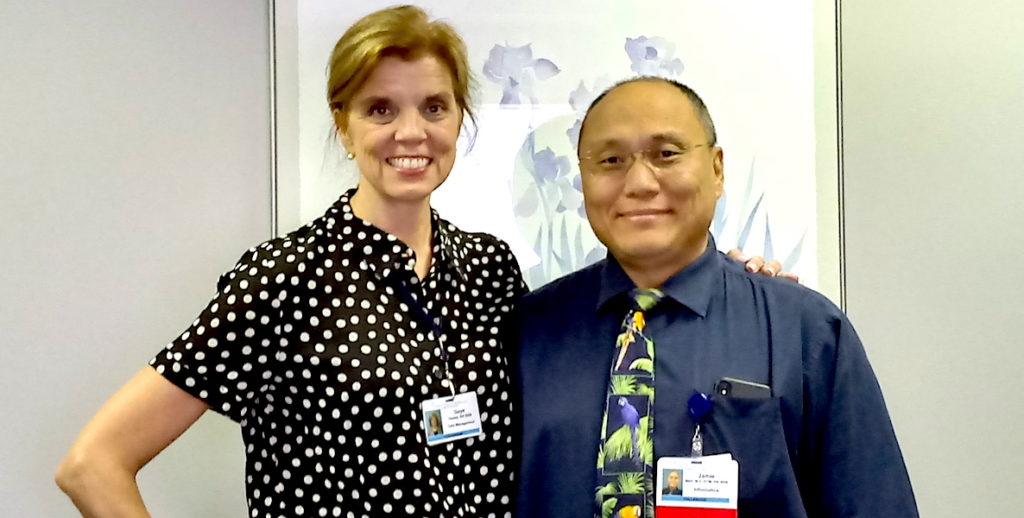Spend time with Gaye Harley, and it’s hard to imagine the ebullient nurse ever having been down on her luck. She oozes optimism.
But when she was 13, Harley was homeless, living with her two siblings and single mom in a motel and building meals around the dented cans of food her mother, Wanda, would scrounge. “My mother must’ve had 100 recipes for beans,” recalled Harley, a patient navigator at Saint Francis Healthcare Hospital in Wilmington.
“She was so strong, so positive, that she was able to lift us up on the little that we had,” Harley says. “She always told us, ‘There are always people worse off than you.’”
“No matter what stage we are in—repair, disrepair—I think we all need that boost sometimes,” she says, “for someone to just say it’s all right, I’ve got your back, you are loved.”
Wanda’s spirit lives on in Harley, who in late 2018 began rounding up her hospital’s operating room (OR) wraps—the oversize sheets of synthetic material in which sterilized OR instruments come packaged—and sewing them into portable mats and roomy tote bags to be distributed to people living on the streets. The mats are as useful as a barrier on the cold ground in winter as they are on overheated pavements in summer.
![]()
She then put out a call to hospital colleagues for sewing help and immediately heard from Jamie Powell, Saint Francis’ informatics director and a former pediatric nurse.
“I hadn’t sewn since fifth-grade home-ec class, but as a father of two now, I really try to make sure my kids understand that we’re very fortunate, and there may be a time when we’re not,” he says. “It reinforces the idea of being appreciative of what you have. So when Gaye reached out, it was like, OK, ‘I don’t know what’s involved, but I’ll see what I can do.’ ”
To date, Harley and Powell have distributed about 100 mats via the people who most often interact with those on Wilmington’s streets, from hospital security guards and social workers to EMTs and those who deliver care through the Saint Clare Medical Outreach Van. They create mats in two different sizes as well as tote bags, into which they place one of the 1,500 pairs of socks Harley arranged to have donated from Bombas, the mission-driven footwear company.
Their project is more than a cuddly notion: Some figures estimate that ![]()
Saint Francis isn’t the only hospital using its OR wraps to help those in need. Harley first learned about the activity after reading that Virtua Our Lady of Lourdes Hospital in Camden was doing it.
“At that time, one of our local shelters was closing. I thought about the influx of people who would be sleeping on the streets and said, ‘Why can’t we take this program and give others comfort?’ ” Harley says. “If Camden can do it, why can’t Wilmington?”
“I hadn’t sewn since fifth-grade home-ec class, but as a father of two now, I really try to make sure my kids understand that we’re very fortunate, and there may be a time when we’re not,” he says.
When she contacted Lourdes staffers for pointers about how to get started, they directed her to Providence Little Company of Mary Medical Center in Torrance, Calif., which had been the Camden team’s inspiration.
In the future, Harley and Powell hope to include additional toiletries and hygiene items in the totes, and to possibly reconfigure the mats to have a pillow-like headrest.
One afternoon at the hospital, as she demonstrated how she produces the satin-like “You Are Loved” ribbons on her label-maker, Harley summarized the mission she and Powell are so lovingly executing.
“No matter what stage we are in—repair, disrepair—I think we all need that boost sometimes,” she says, “for someone to just say it’s all right, I’ve got your back, you are loved.”
A version of this story also ran in The Inquirer’s UpSide.

